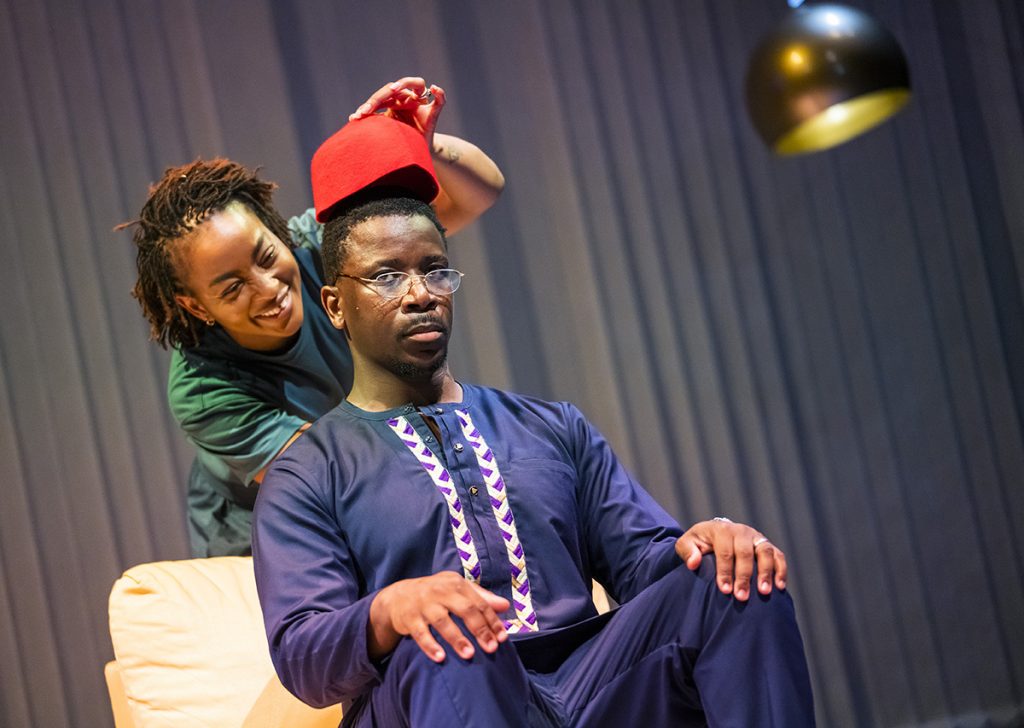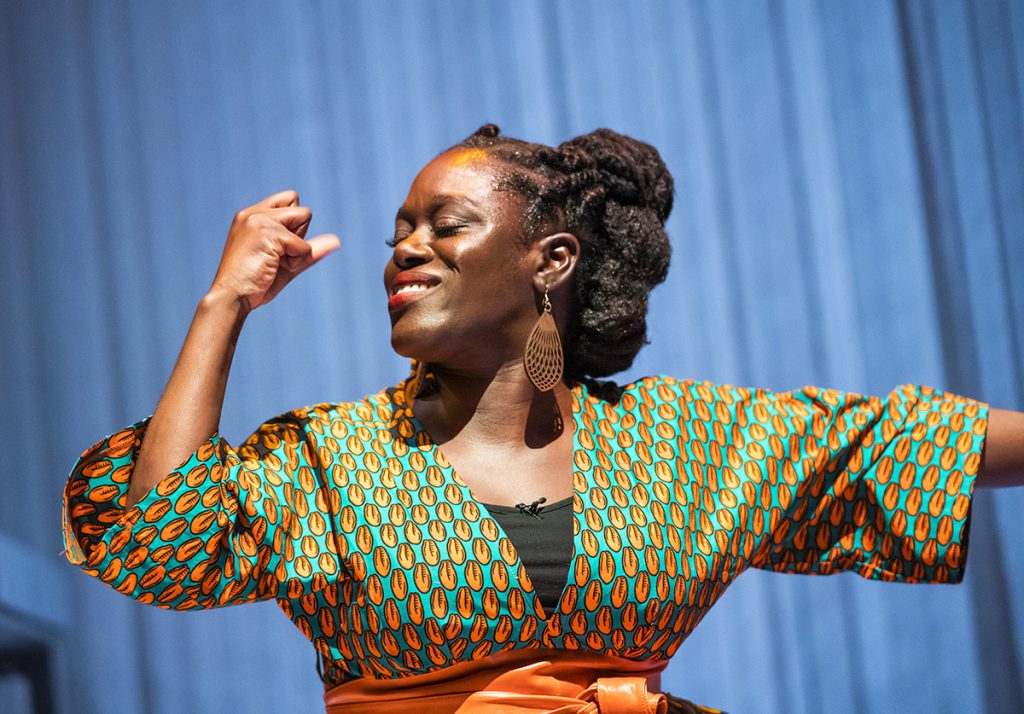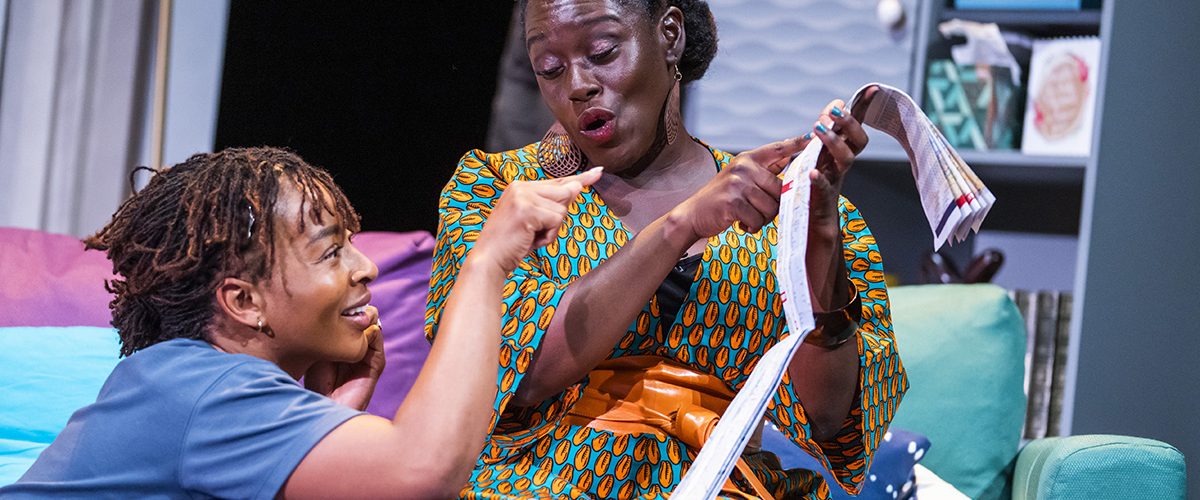It is a not-quite-paradox of human life that we are all the same and yet each is so unique. One way or another, these two facts underpin all of human joy and suffering. Take, for example, grief: so universal an experience for humanity, yet so particular for each of us.
The gifted Nigerian American author, Chimamanda Ngozi Adichie, lost her beloved father last year. Though it seems he was not a victim of COVID 19, his bereaved family endured the added burdens of the restrictions brought on by responses to the pandemic.
Adichie has written an essay about this loss (“Notes on Grief”), which has now been brought to the stage at the Manchester International Festival. It features three actors – Michelle Asante (carrying the main burden of the narration as the author herself), with Uche Abuah and Itoya Osagiede lending support in multiple roles (as younger self, mother, brother and father, among others).

It is, of course, a very personal story – how could it not be? None of our fathers were Deputy Vice Chancellor of the University of Nigeria, fought in the Biafran War, were kidnapped in old age and held to ransom because our daughter is a famous and wealthy author. Nevertheless, those of us who have lost and grieved (especially for a parent) recognise many elements in Adichie’s tale – from her shock at the first news of her father’s ‘demise’ (a term commonly used by Nigerians, which the author despises) to her unresolved struggles to speak of him in the past tense.
Many of us will empathise with that sensation when ‘the air turns to glue,’ or the fear of being ‘utterly unravelled’ by loss. So what if eighty-eight is a ‘good age’? What matters is not ‘how old, but how loved’ someone is.
Chimamanda, like many daughters, had a bond with her father that no other man could replicate. Her husband notes that, not only does she laugh at her father’s jokes even when they’re not funny, but she reserves a special, high-pitched little girl laugh only for him.
“A laugh that I will never laugh again.”
Her father’s blend of fierce pride and blunt critique has been character-forming:
“Is he why I have never been afraid of the disapproval of men? I think so.”
Here was a gentle, firm man, a man’s who “worshipped integrity,” who bestrode his family like a benign colossus. Her mother refused at first to accept that his death because, on her final visit to his hospital bed, he had not told her he was going to die; so it could not be true. Her brother insists upon following strict Nigerian funeral customs because, “that’s what Daddy would have wanted.”

It is not our story, but we recognise and learn so much because Adichie is such a fine writer. I will read the essay, because it is a fine essay. But it is not a drama, nor even, as it stands, a piece for performance. This is not the fault of the cast (though director, Rae Mcken, could have been bolder with staging, and more ruthless with the text). There is no quest to drive a drama, no question is seeded in the audience’s mind to add dramatic form to the monologue – just a set with occasional movement; more a nod to rather than an embracing of theatre as an art form.
Chimamanda Ngozi Adichie has written an outstanding encomium to a remarkable father. I commend the essay to you.
Notes on Grief is at Exchange Auditorium, Manchester Central as part of Manchester International Festival 2021 and is also available to watch digitally.





